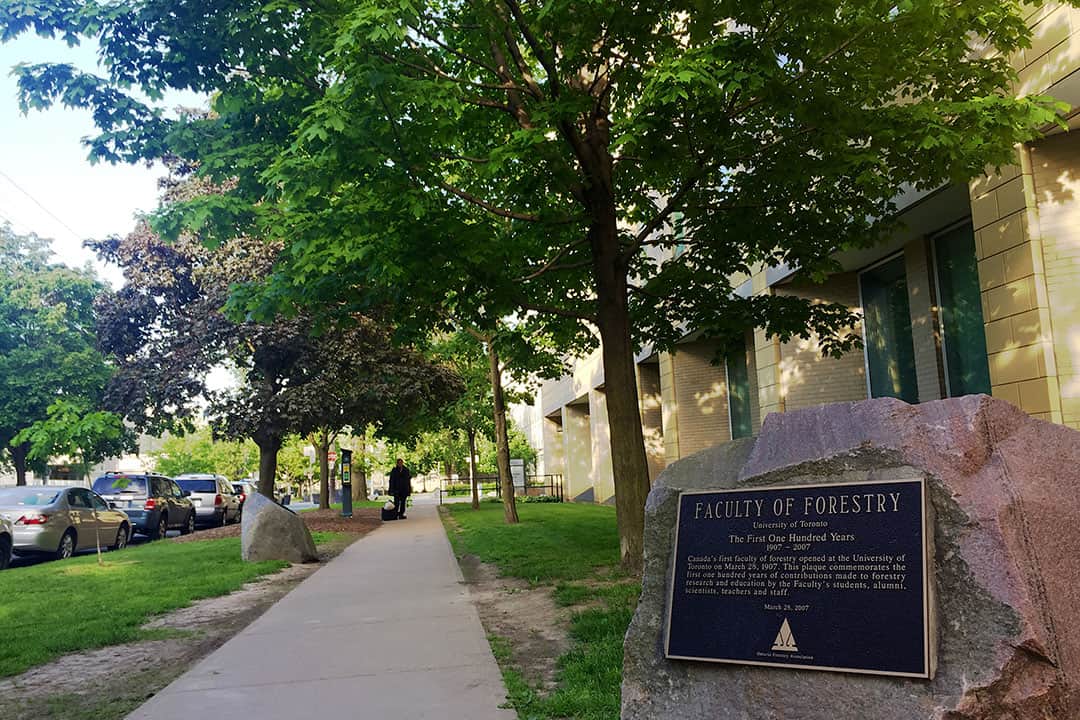The second round of consultations related to the potential restructuring of the Faculty of Forestry began on October 5, when Vice-President and Provost Cheryl Regehr published a report summarizing the results of the first round and opened the floor to comment on the report.
Concerns and suspicions remain among students, alumni, and administration from both the faculty and the broader university administration. In the first round of consultations, they were given the option to submit online written opinions, as well as meet with members of the administration to express their views on the issue.
Initial consultations on the future of the Faculty of Forestry ran from May 12 to July 4 after Regehr published a memo explaining the consultations in March.
Regehr’s report
The discussion paper is broken down into two sections: a summary of the feedback received and a range of questions and answers from during the discussions.
The Office of the Vice-President and Provost received 99 online submissions. Professor Elizabeth Smyth, Vice Dean, Programs of the School of Graduate Studies and Chair of this first phase of consultations, met with 79 various faculty members, students, staff, and alumni in 13 in-person consultation sessions.
A large variation of groups met with Smyth, including representatives of the School of the Environment and representatives from the Dean’s offices of the Faculty of Arts and Sciences, as well as UTM and UTSC.
Potential restructuring suggestions ranged from expanding the current faculty to closing the faculty altogether and transferring the programs into cognate units. Feedback from the online submissions as well as the face-to-face meetings stressed the importance of the Faculty of Forestry and listed its contributions to the overall field of forestry. In addition, both feedback outlets produced varying statements of concern over Forestry keeping its faculty status.
With the faculty and the administration having a history of discussing potential restructuring, the report mentions that “having been cast as ‘trouble makers’” in past discussions, the alumni are concerned with the fairness of the current process.
Stakeholders respond
Forestry Matters, an online group led by students Theresa Richlin, Annonciade Murat, and Basil Southey submitted a petition related to the consultations with 886 signatures at the time of submission on July 2. The introduction of the petition reads, “The Faculty of Forestry is at risk from inappropriate academic restructuring that could further restrict programs and operations and threaten the future of forestry education at the University of Toronto.”
Questions such as “How can consultations take place over the summer if some students are away?” and “How could the consultation take place without a Dean at the Faculty of Forestry?” were asked during the consultations and reflect the concerns expressed in this petition.
Current Dean Robert Wright took office immediately following Dean Mohini Sain leaving the post. Wright expressed his admiration of how openly the consultation process was carried out and stressed the importance of restructuring in order to “stay at the cutting edge” of forestry science. However, other groups involved did not share his optimism.
Marcin Lewandowski, Chair of the Faculty of Forestry Alumni Association, while impressed with how well the consultation paper balanced the opposing opinions on the issue, said that he took issue with the language used in the discussion. The language “insinuated that there’s a problem with the Faculty of Forestry, and to us, at least, it is an attempt to create a problem as opposed to a problem that exists.”
However, Lewandowski concedes that as long as the administration continues to recognize the importance of forestry science and ensures that there is a teaching staff to properly teach the curriculum, the alumni will be satisfied.
Southey, President of the University of Toronto’s Foresters’ Club, expressed disappointment, feeling as though undergraduate students have been overlooked. The consultations were completed during the summer, while many students were away working. Southey mentioned in an email to The Varsity that undergraduate students “had to struggle to be involved in the conversation,” claiming that the administration “made no effort to include undergraduate perspectives.” However, Southey still expresses hope that the administration will work to strengthen the faculty by increasing the resources available to the faculty.
The next step in the process is collecting and reviewing responses and comments to the report. Following the high volume of participation in early stages of the process, Regehr expressed her optimism on the outcomes of the discussions.
Regehr welcomes any comments or feedback on the discussion paper. “Everybody who wanted to voice an opinion and engage had an opportunity in the first stage,” she said. “They have an opportunity again now in the second stage.”


